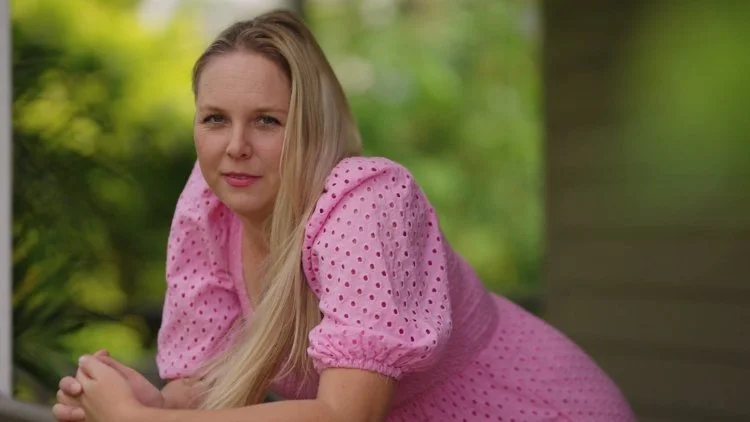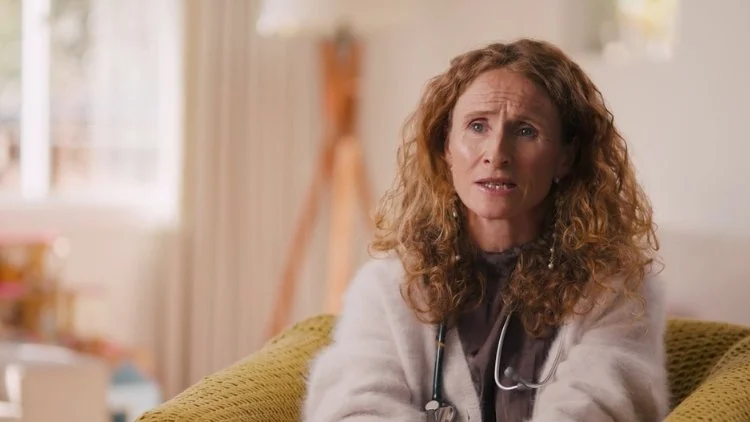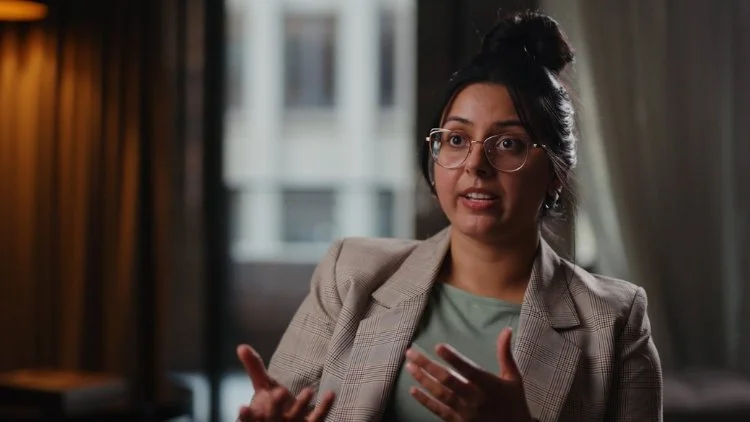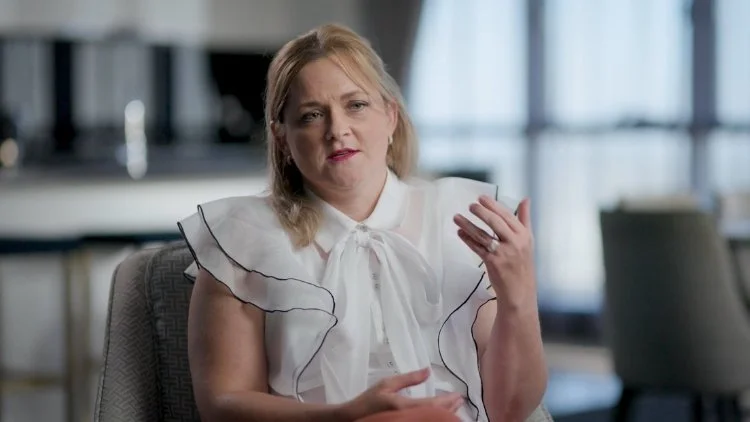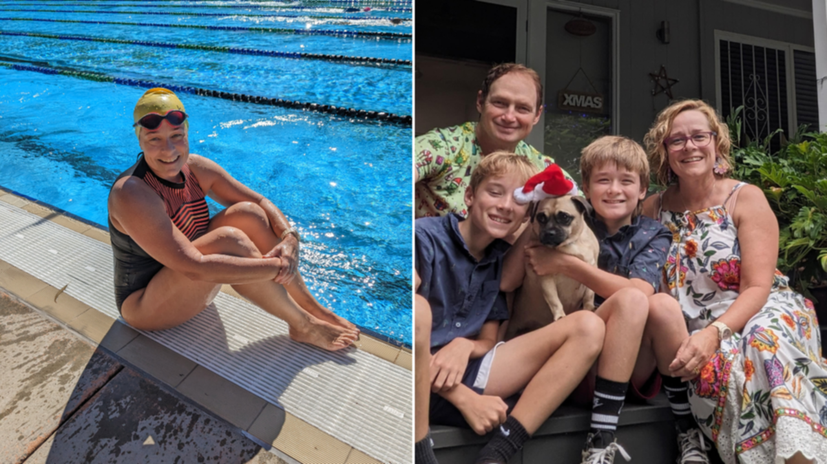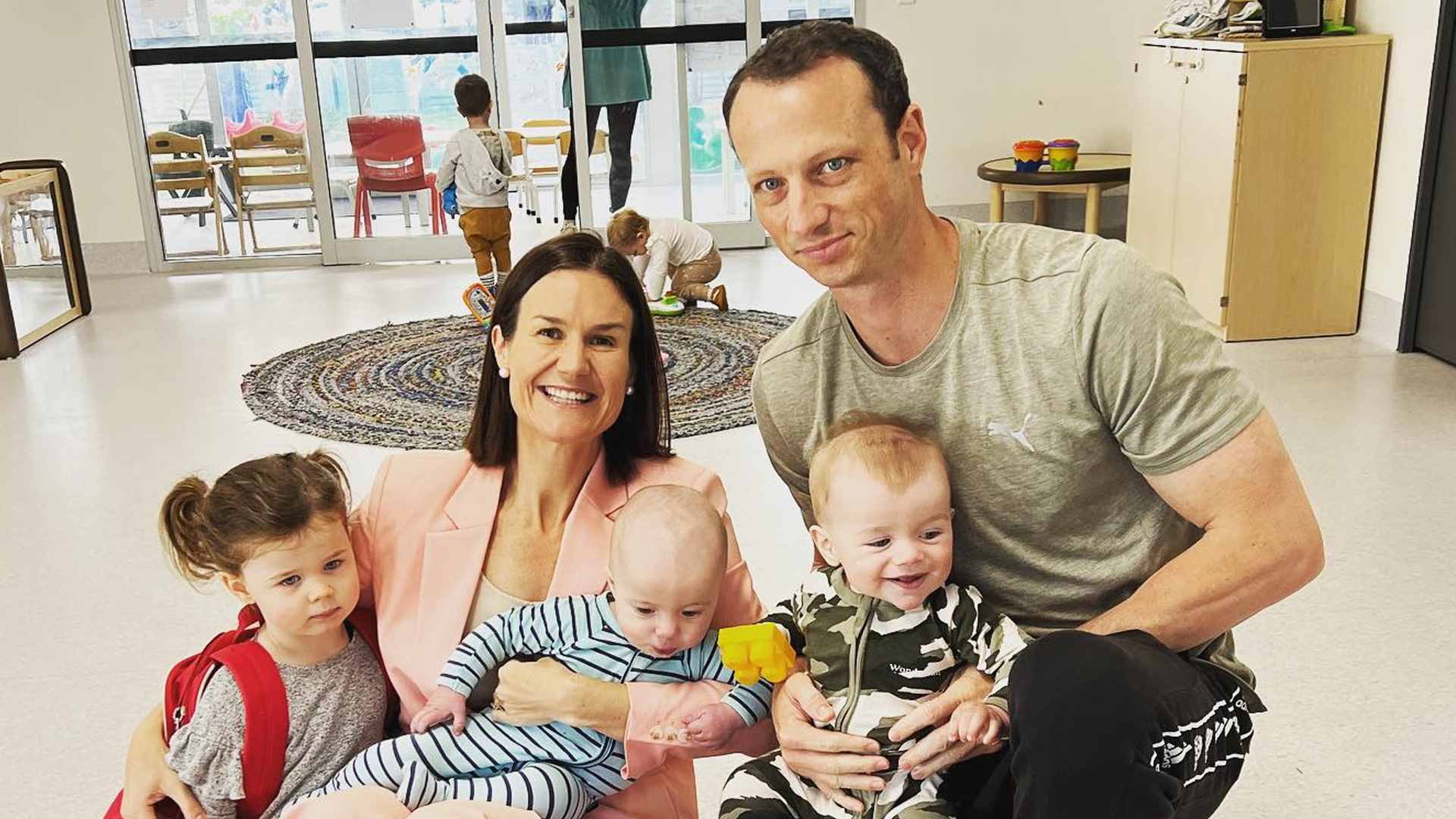The voices of the Stronger PBS Campaign
Hear from patients and healthcare professionals who understand better than anyone the life-changing impacts of the PBS.
While the PBS has known many successes, there are thousands of Australians living with a health condition that are waiting for medicines to be available on the PBS.
We know that the lack of access to medicines is not a unique problem. If you would like to submit your own experience please contact us at StrongerPBS@medicinesaustralia.com.au.
Maria – Living with Breast Cancer
“You're thrown into this world and suddenly you really have to advocate for yourself. I shouldn't have to do that, and sometimes that's really hard.” - Maria, living with breast cancer.
Through her own research Maria found a treatment available overseas with promising results for her type of cancer, but it’s not yet available in Australia.
Meredith - CEO NeuroEndocrine Cancer Australia
“Australia needs a Stronger PBS so that Australians can have a better chance of life if they have a disease that needs to be treated.”
Kiriana – Living with Inflammatory Bowel Disease
"I’ll forever be grateful that I have access to the medicine I need and I’m acutely aware that not everybody does.”
It has been a long journey for Kiriana from her initial diagnosis of inflammatory bowel disease to having access to a treatment on the PBS that has drastically changed her life.
Dr Ceri Cashell, GP
“As a doctor, there are times you know of a treatment that would work for your patient, but either it’s unaffordable because it’s not on the PBS, or it isn’t available in Australia. To see somebody unnecessarily suffering goes against everything you’ve been trained to do.”
Chris - Living with Von Hippel-Lindau disease
Chris was diagnosed with von hippel-lindau at the age of 19 and was told he wouldn’t live beyond age of 30. He has endured multiple surgeries to remove tumours growing throughout his body due to the genetic condition, and lives with half a kidney.
In 2022, Chris became the first Australian to access a new medication in the US that stops or slows tumours from growing. While the treatment is now available in Australia, it’s not on the PBS.
Sandeep - Living with Ulcerative Colitis
Sandeep lives with ulcerative colitis - a form of inflammatory bowel disease linked to her immune system. It has impacted her life, her career and her relationships for years.
A Stronger PBS will give people living with autoimmune diseases access to the best medicine available when they need it.
Carolyn - Mother
“We were fortunate. But there are families who have had a child with Spinal Muscular Atrophy and a different genetic makeup, and they could only access the treatment if the child began to show symptoms. So they wait on the edge of their seat wondering, is that a symptom? Do they qualify now?”
Hayley – Living with Rheumatoid Arthritis and Crohn’s Disease
“Australia needs a Stronger PBS to enable people with chronic diseases to live a normal life and contribute to society.”
Hayley first experienced symptoms of rheumatoid arthritis at the age of 10. It was six years before she was diagnosed and could start treatment. Despite having needed a full shoulder replacement and pins in her toes, Hayley didn’t qualify to access a new biologic medication to treat rheumatoid arthritis until she was also diagnosed with Crohn’s disease.
Lana – Living with Von Hippel-Lindau disease
“It is totally out of reach. It's grossly expensive and it's inaccessible. And it needs to be subsidised.”
Lana is one of approximately 500 Australians living with von hippel-lindau syndrome, a genetic condition that puts people at high risk of developing tumors.
A new medication has been registered for use in Australia but is not yet available on the PBS.
Alison, Living with Lung Cancer
Alison, a mother of four, lives with stage three lung cancer. When she received her diagnosis, the only medication that could extend her life cost $7000 per month, a staggering amount for the Brisbane mum. Fortunately, shortly after her diagnosis, the medication was listed in the Pharmaceutical Benefits Scheme (PBS), reducing the cost to just $40.
While Alison's cancer remains incurable, she is vigilant for new innovative medications in case her current treatment becomes ineffective, yet only one of these potential treatments is PBS-listed.
Jess, Living with Cystic Fibrosis
“When I was diagnosed at 18 months of age, the prognosis for patients with cystic fibrosis wasn't much beyond childhood.
Throughout my life we’ve seen new medicines come to market and that’s made it possible for me to have a family. It’s incredible to see a community that weren’t meant to live beyond childhood become parents themselves.”
Prof John Zalcberg, Medical Oncologist
“The PBS has been a fantastic public health program that has provided many effective drugs to a majority of the population.
On the other hand, the PBS is limited in its structure, and the processes that underpin whether a drug is available or not are complex… unfortunately, it doesn’t always provide the most recent drugs to the people who need them quickly and urgently. ”
Ryan, Living with Type 1 Diabetes
Ryan was diagnosed with Type 1 Diabetes at 18 months old. Ryan’s mum had to stop working due to the care involved in managing his diabetes. Eventually, thanks to insulin medication and other treatments made available through the PBS, Ryan was able to start managing his diabetes independently.
Today he lives as a normal 21-year-old life, playing and coaching sport and travelling with his friends.
Dr Fran Boyle AM, Medical Oncologist
“You know it works, it’s been approved in Australia for use and the rich will be the only ones accessing it. That extra year of delay means people will not be cured of their cancer who could be.
People who could have better quality of life with their cancer treatment don’t have that, and people are dying sooner than they need to.”
Millie’s Mum, Millie is Living with Cystic Fibrosis
“Unless you’ve had to go through it, you never think that a listing on a drug list is really going to change someone’s life.
But it did, and it does, and it will.”
Alison and Anita, Living with Lung Cancer
Alison and Anita are two mums from Queensland who have advanced lung cancer.
Over the last 10 years, Anita has been on 4 different cancer treatments when her cancer has grown at different times.
The medicines they both need haven’t always been available through the PBS, and they worry that when their disease progresses they will need new treatment options.
Dr Malinda Itchins, Medical Oncologist
“We are fortunate to have a strong PBS program in Australia, however, we need to reform the approval process particularly with the introduction of advanced diagnostics and precision treatments that can target biomarkers.
With this approach, we know that 'rare' cancers are not so rare. We need a versatile program which enables cost reimbursement and more flexible indications for access.“
Kayleen, Living with lives with Gastrointestinal Cancer
Kayleen lives with gastrointestinal cancer. Diagnosed at just 24 years of age, she struggled to find a treatment for her cancer for decades and lived through fatigue, pain and nausea.
When her Oncologist found a new treatment available in Australia it was not available on the PBS. Unable to afford the treatment herself, Kayleen was lucky to get access through a compassionate access program.
Ross, Stage IV Melanoma Cancer
“Ensuring all treatments like Immunotherapies are available to all patients who have received a diagnosis of cancer, no matter what level or stage of cancer, will result in lives being saved.”
Amanda, Parent of Child Living with Cystic Fibrosis
“It’s so important to be able to improve the accessibility to medications that can change lives. To have that possibility there and not be able to access it is heartbreaking.”
Bianca, Living with Atypical Haemolytic Uremic Syndrome
“This medicine saved my life. It allowed me to stop dialysis by halting the attack and enabling my kidneys to heal. Now, I can live without the constant fear of another attack looming, provided that access via the PBS continues. It’s given me a future.”
Sarah, CEO, Inherited Cancers Australia
“Access to new medicines isn't always equal, and thatʼs a harsh reality.“
Tamara, Founder & Director MSCAN
Tamara was diagnosed with metastatic melanoma over eight years ago.
Because of her stage 4 diagnosis, Tamara was able to access an innovative new treatment through the PBS and is today cancer free.
Michelle, Living with Lupus Erythematosus
Michelle is diagnosed with lupus erythematosus, a debilitating autoimmune disease.
Thanks to PBS, she has been able to access life-changing medicines that enable her to manage her condition and live independently.
Robyn, Patient Advocate
“When my mum was diagnosed with ovarian cancer, genetic testing meant she qualified for a drug trial.
That drug is now available for treatment of other cancers but wouldn’t it be great if cancer patients could get access to new treatments more quickly?”
Andrew, Executive Officer, Neurological Alliance Australia (MS Australia)
“We want to make sure people living with neurological conditions have as many choices as possible in terms of treatments coming to the market, recognising the positive impact those treatments have on people's lives.”
Matthew, Living with Treatment Resistant Depression
Matthew was diagnosed with Treatment-Resistant Depression and has run out of current options available in Australia.



